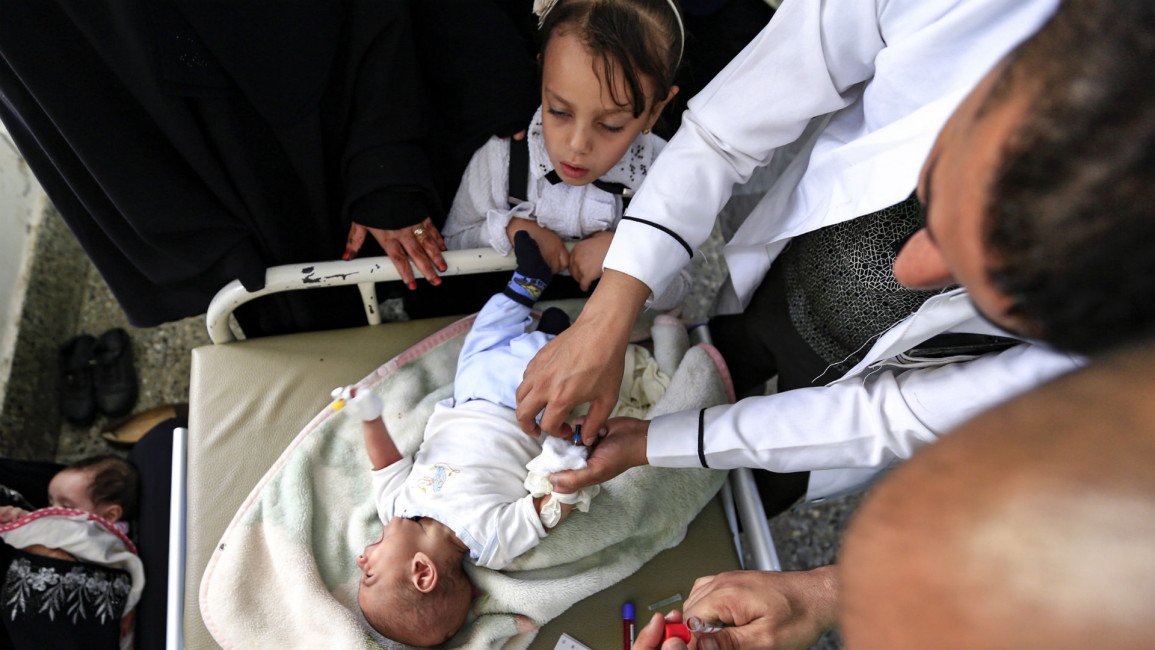Houthis impose tax 'on every operation' conducted by doctors in private hospitals
The Tax Authority in the rebel-held capital announced the move this week, which stipulates mandatory tax for all doctors conducting surgeries on patients in private hospitals.
A 4 percent discount is awarded to doctors with a registered tax number, Al-Masdar Online reported, quoting an unnamed source.
The source also revealed a campaign of harassment by the Houthi authority targeting specialist doctors in government and private hospitals with the aim of forcing the medics to treat wounded rebel militia free of charge.
The source also added that doctors not employed by the government sector are obligated to work in government hospitals. Those who refuse risk losing their licence to practice the profession, the source added.
The rebel-held ministry of health also ordered private hospitals to suspend doctors who are not showing up for work at their government jobs and warned a 500,000 Yemeni rial fine for ignoring directives.
Twitter Post
|
Doctors working in the government sector have been forced to search for private jobs elsewhere amid a salary crisis which saw millions of public servant employees fail to receive regular wages since the start of the conflict.
Pay to pray?
Last week, Yemeni worshippers attending a mosque in Sanaa were ordered by Houthi rebels to pay to use the premises, according to a notice pinned to the gate of the religious institution that has since gone viral online.
Mosque goers wishing to pray the early morning dawn prayer must pay 100 Yemeni rials ($0.40), while those attending all other prayers during the week, including Friday prayers, have been told to pay 50 Yemeni rials ($0.20).
Praying the traditional Tarawih night prayers during the holy Muslim fasting month of Ramadan requires 100 Yemeni rials, the notice says.
A monthly subscription fee of 4,000 Yemeni rials ($16) could be paid for regular attendees of the mosque, the notice adds.
The Houthi supervisor at the mosque has justified the absurd move to pay for the runnings costs of the institution, including the electricity and water bills.
However, not all prayers require a fee.
The notice says all those intending to pay the prayer of the dead as per traditions of Islamic funerals, may do so free of charge, only if the deceased is from the same family.
Yemen's Minister of Information Muammar Al-Eryani weighed in on the debate with a tweet in which he slams as never having "occurred throughout all stages of history", he added.
"These criminal practices that have reached an unprecedented level of recklessness and disregard for the suffering of the people and the deliberate humiliation of people."
Read more: Prolonged Yemen war could cost billions in aid as humanitarian crisis charges on
The minister called on Yemenis in Houthi-controlled areas to "catch up with the Arab uprisings" and "regain their dignity and overthrow this criminal gang", referring to the Houthis.
The Yemen conflict was sparked after Houthi rebels overran the capital Sanaa and other major cities in 2014, prompting the military intervention of neighbouring Saudi Arabia just months later, which coordinated a coalition of Arab states to reinstate the internationally-recognised government of Abedrabbo Mansour Hadi.
The deadly war has killed more than 91,000, according to figures by ACLED, and has triggered the world’s worst humanitarian crisis, according to the United Nations.
Follow us on Twitter and Instagram to stay connected



